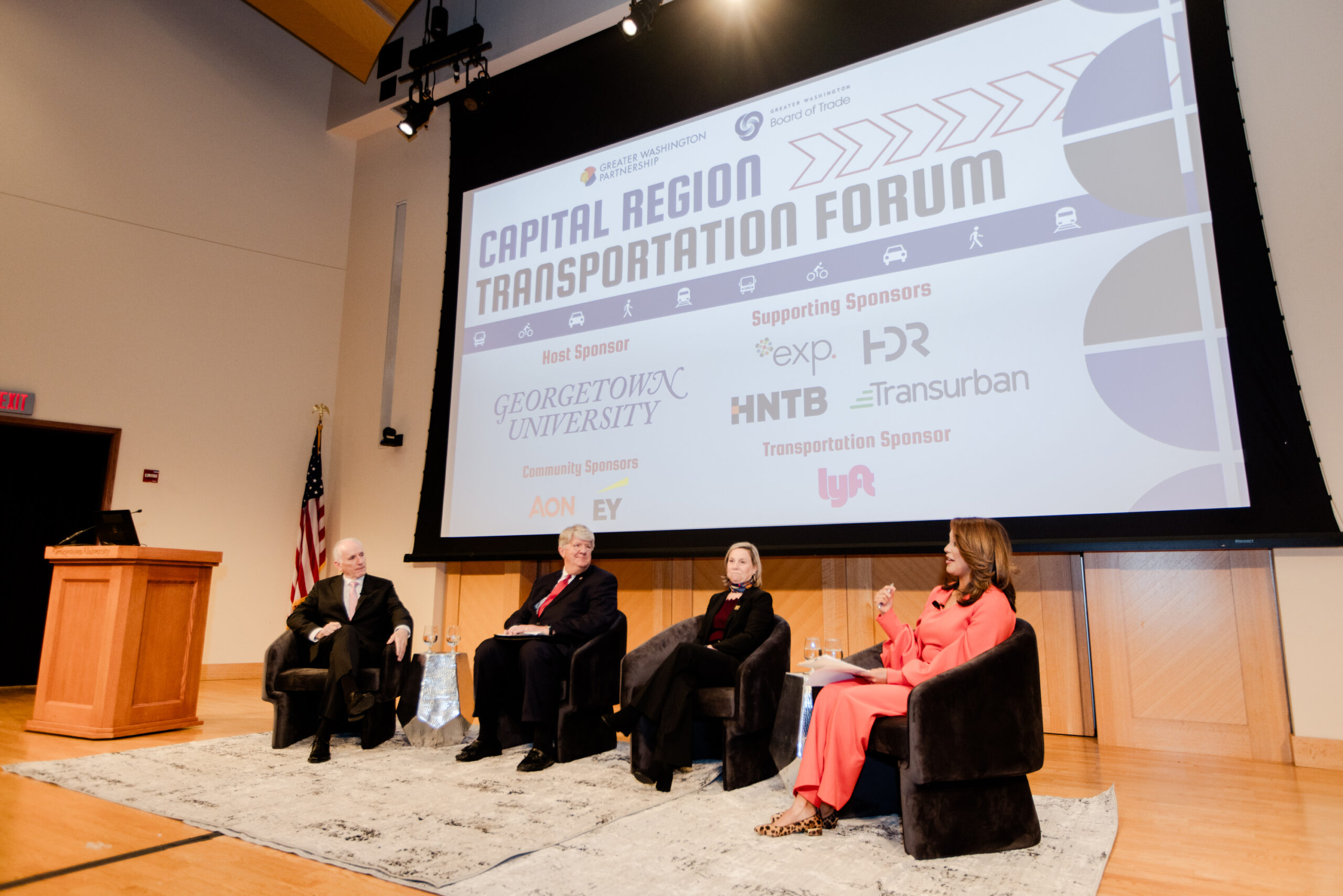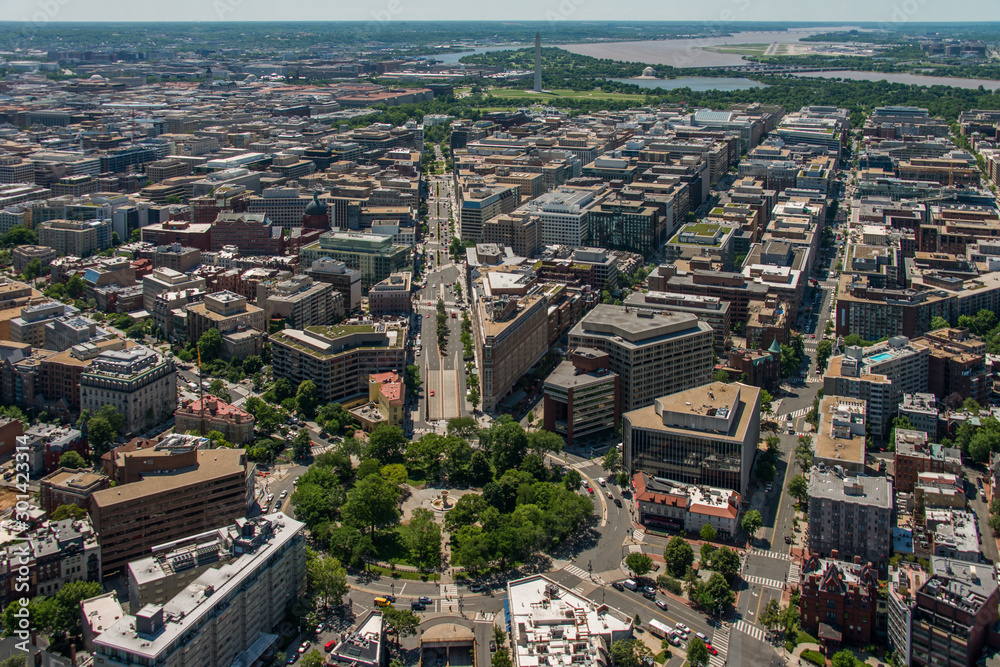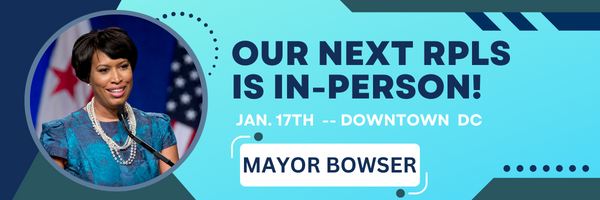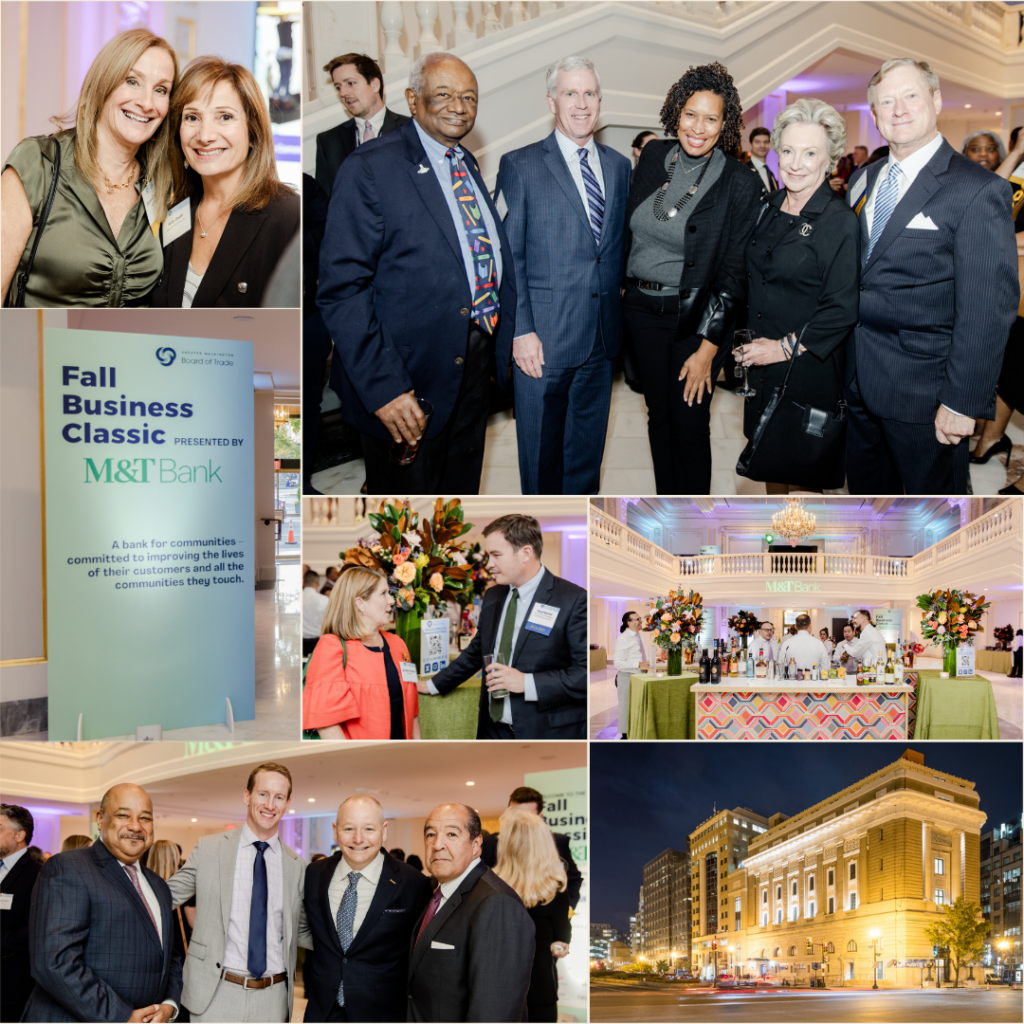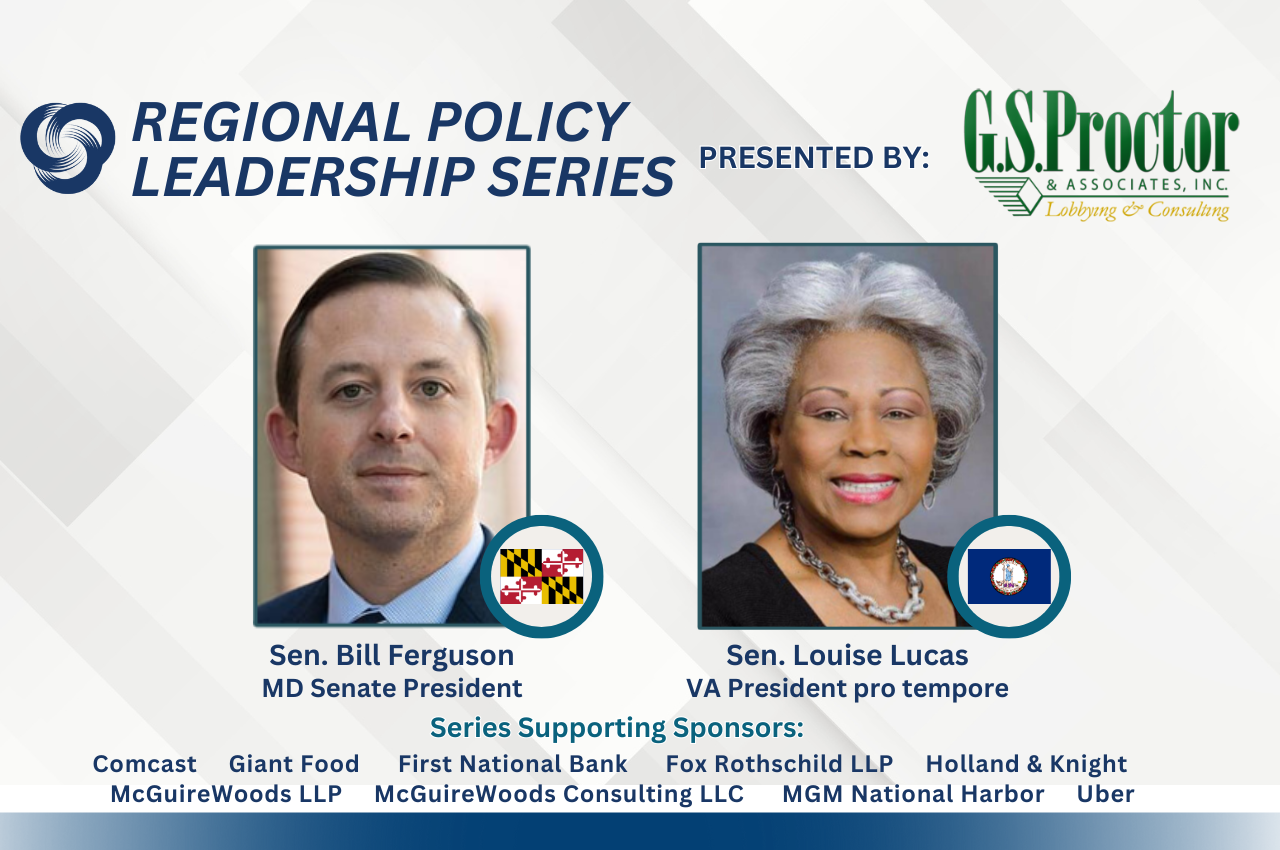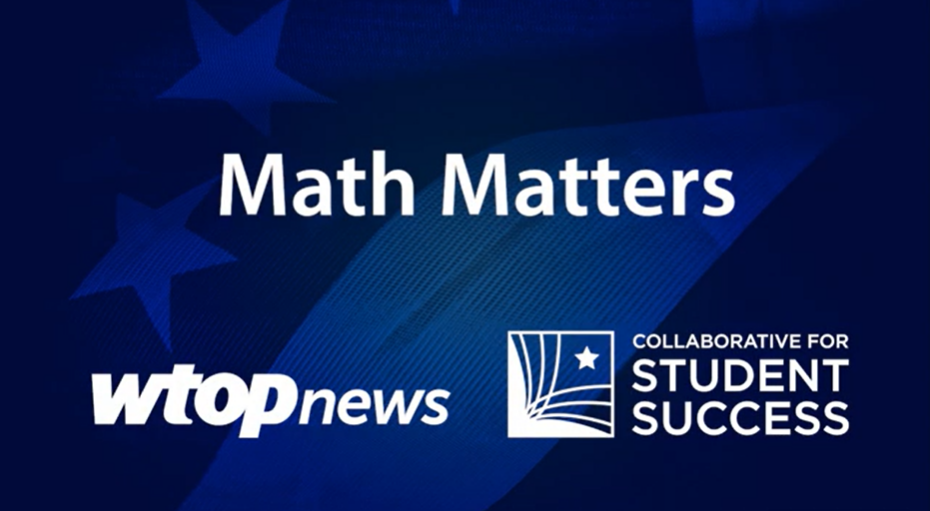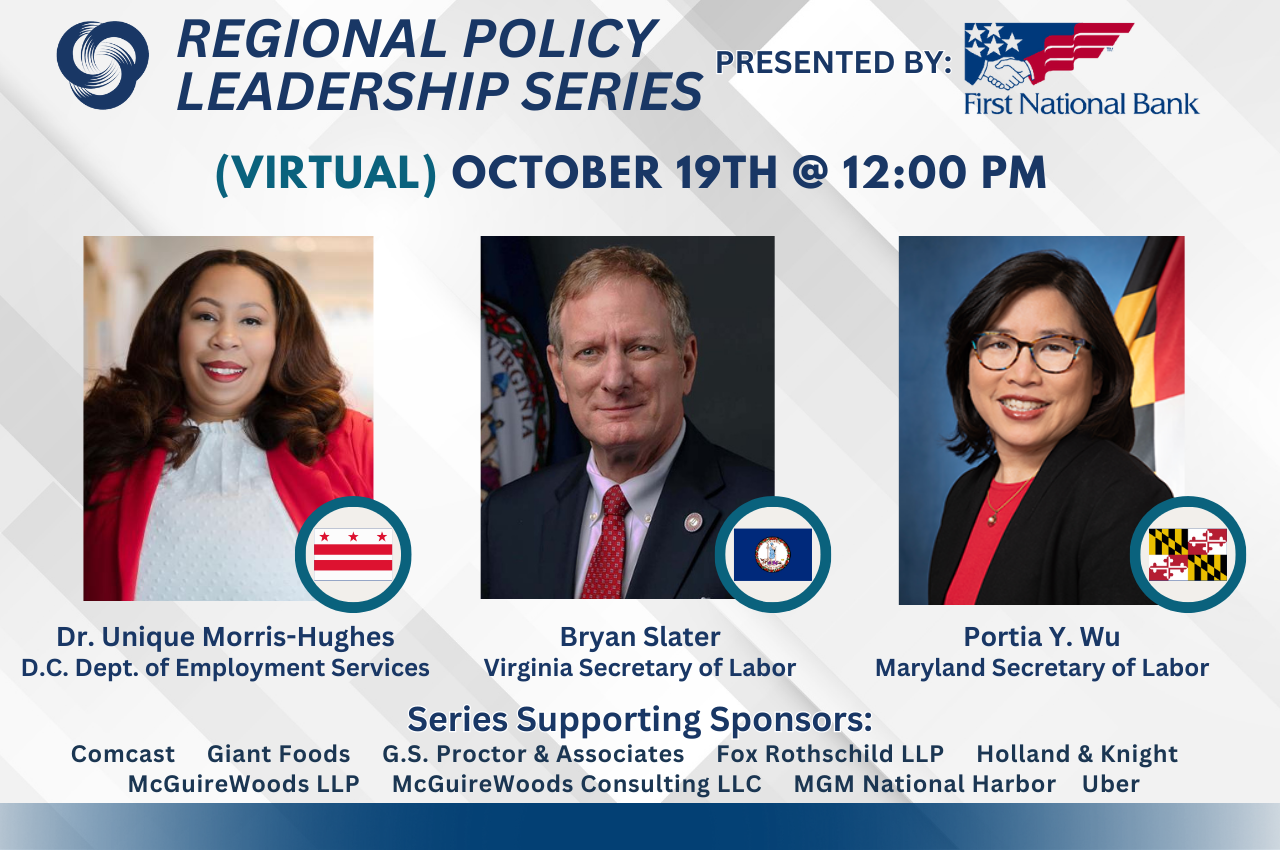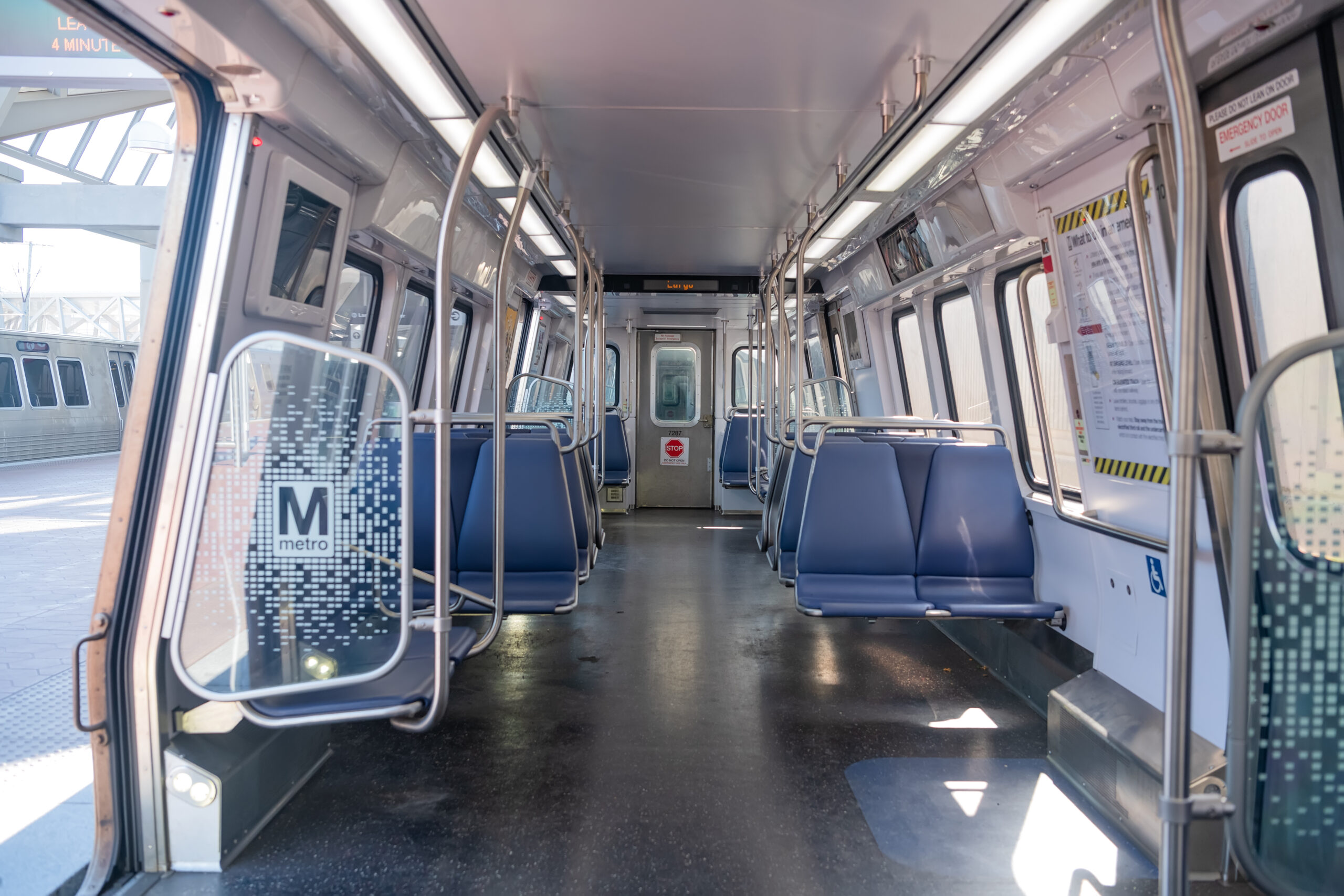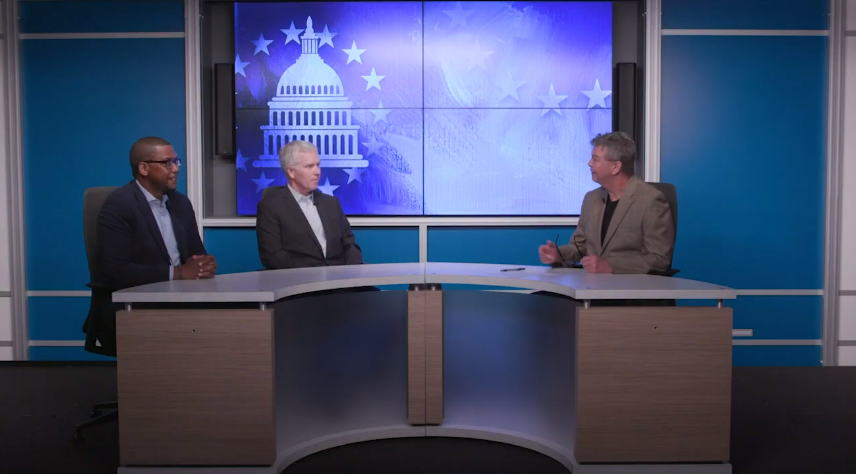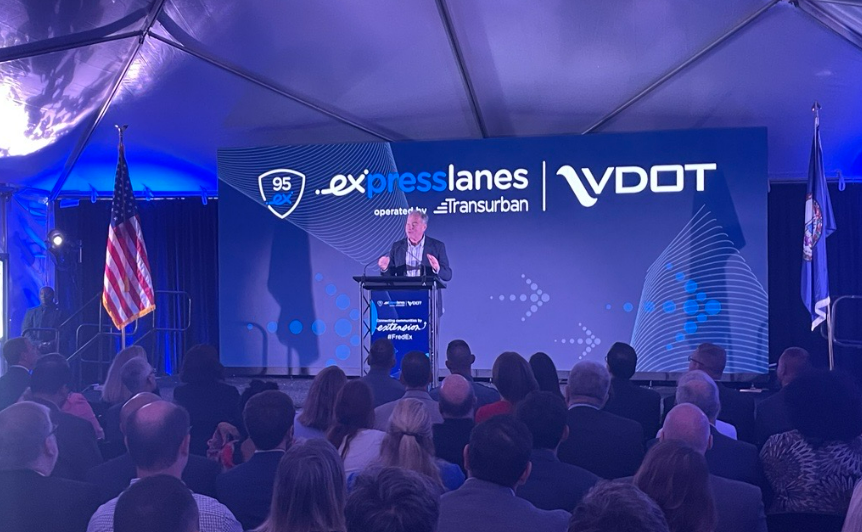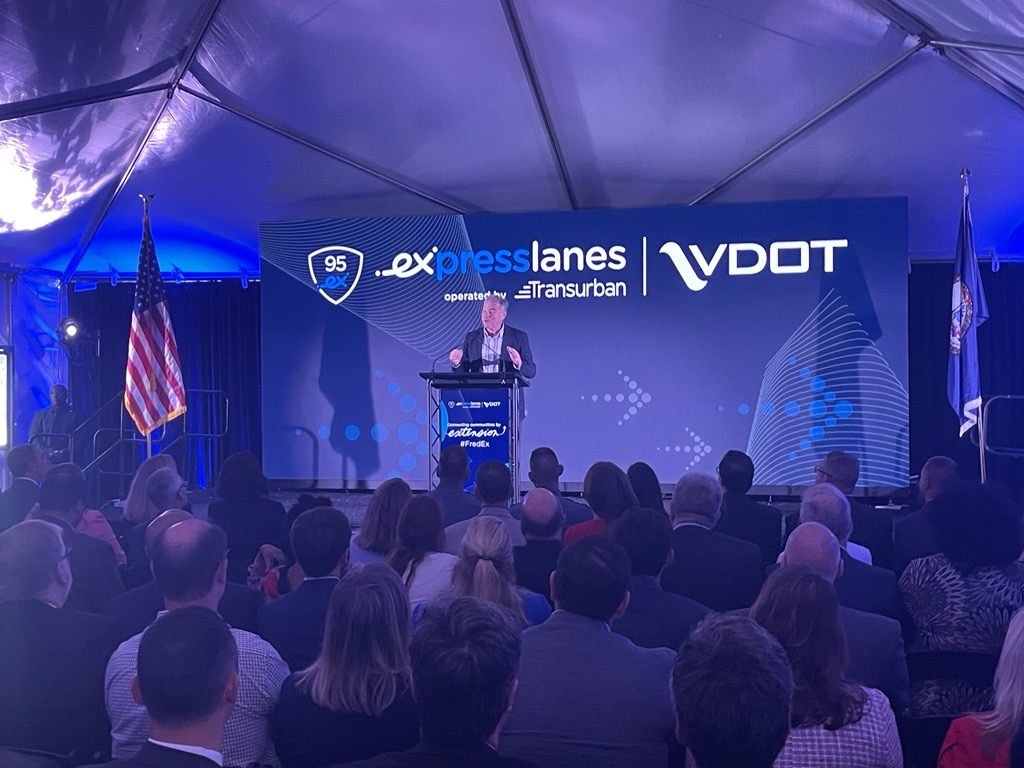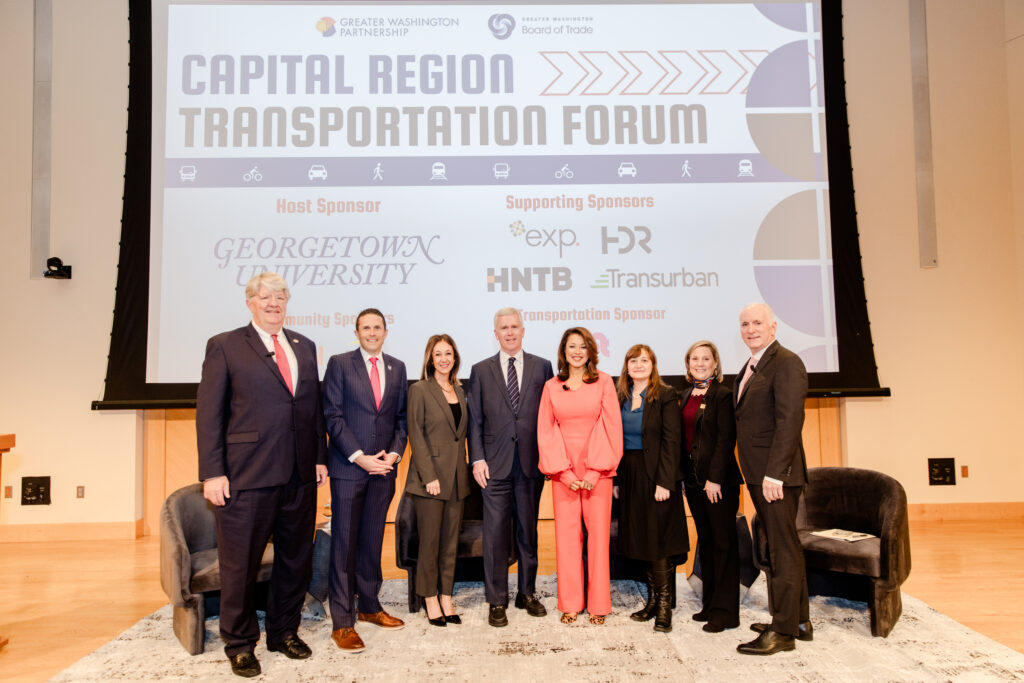
On November 30th, the Greater Washington Board of Trade (the Board of Trade) and the Greater Washington Partnership (the Partnership) hosted the 6th annual Capital Region Transportation Forum. This annual event brings together the Capital Region’s transportation leaders – from Washington D.C., Maryland, and Virginia – to discuss shared challenges and opportunities that require multi-jurisdiction collaboration. This year, the discussion centered around the Washington Metropolitan Area Transit Authority (WMATA) fiscal challenges and regional efforts to overcome them.
The Partnership and the Board of Trade work together to ensure the region is advancing comprehensive and strategic transportation investments that will keep our economy moving. An efficient, accessible, and reliable transportation system is essential to ensuring businesses and residents can thrive.
We kicked off the morning by celebrating many of the region’s transportation wins from the past year, including the relaunch of the Baltimore Red Line, Metro’s post-pandemic ridership recovery and historic levels of service, as well as record-breaking ridership on Virginia’s passenger trains. Most notably, WMATA’s $750 million operating budget deficit for the upcoming fiscal year, remains a major challenge facing the region and we urged leaders and elected officials to work together toward a sustainable solution.
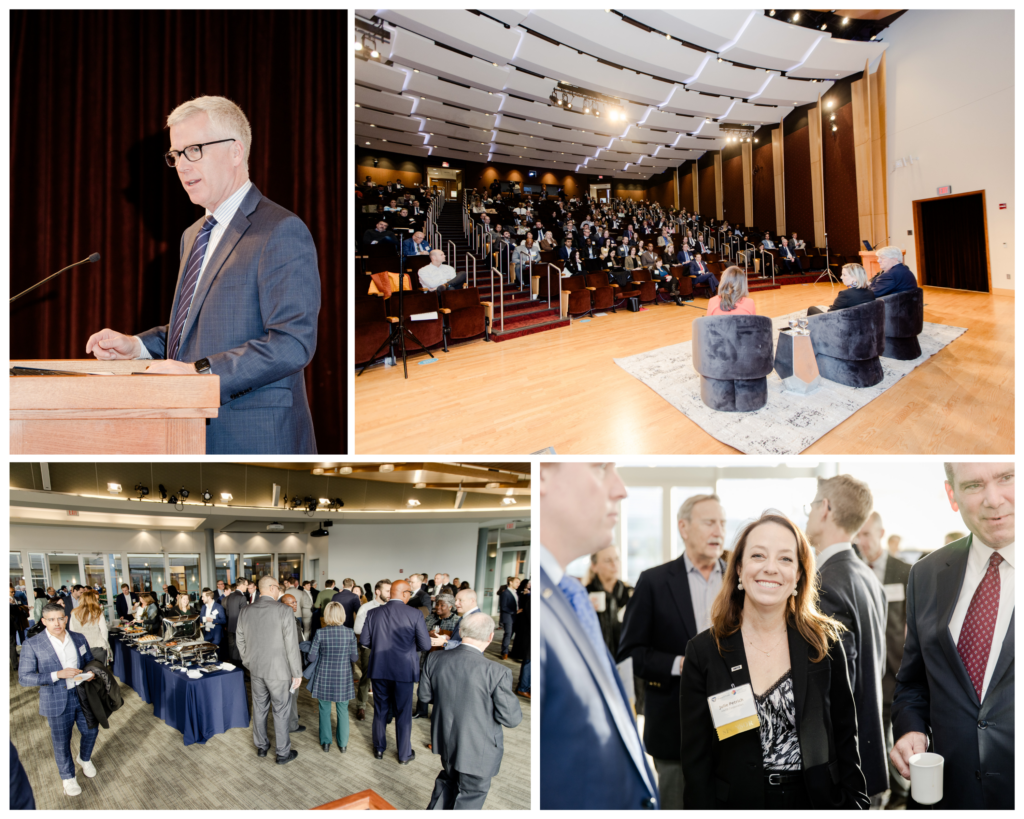
Charting the Path to Sustainable Mobility
The event opened with Dr. Cinzia Cirillo, who is a professor and the interim director of the Maryland Transportation Institute at the University of Maryland. Dr. Cirillo discussed recent research from the Maryland Transportation Institute regarding persistent traffic and congestion in the Greater Washington region despite the prevalence of remote work. She also shared the data science behind those insights, and how such models can be invaluable tools for decision makers going forward to forecast usage, expected impacts, and externalities of future infrastructure projects. “[Monitoring congestion] is not enough, because in order to make investments, we need to be able to predict the consequences of our actions, or no action,” Cirillo said.
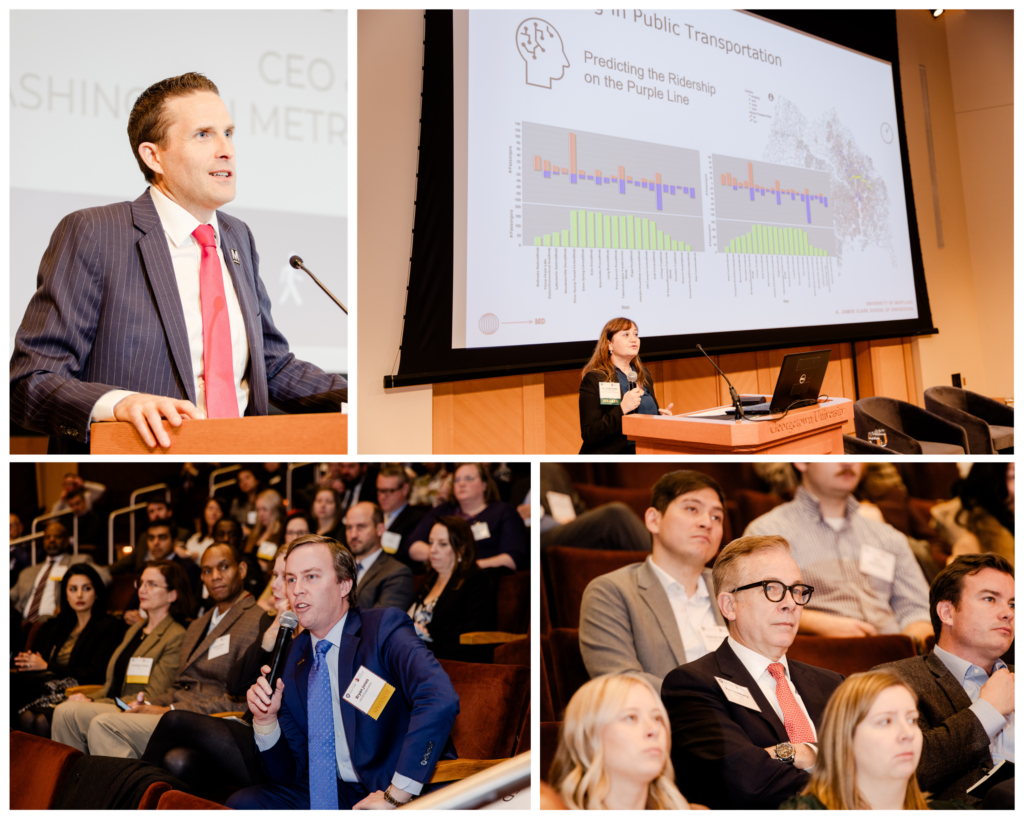
SEE MORE PICUTURES FROM OUR EVENT HERE
Randy Clarke: State of the Metro Address
Randy Clarke, the General Manager and CEO of WMATA, updated the audience on WMATA’s current financial crisis. The transit agency, which is facing a $750 million operating budget deficit, has been working toward reforms, cost savings, and service cuts to help bridge its funding gap. Clarke outlined the major factors contributing to the agency’s deficit, including decreased ridership post-pandemic, inflation, and the depletion of COVID subsidies. If a funding agreement is not defined in the coming weeks, the immediate consequences could include significant service cuts and layoffs. “The state of Metro is strong but highly uncertain. We need to choose as a region what we want Metro to be,” Clarke said.
Clarke presented various budget scenarios with the worst-case scenario requiring drastic cuts to bus and rail services, longer waiting times for commuters, the shutdown of numerous bus lines, and early shutdowns of the Metrorail system. Equally concerning is the huge number of WMATA employees that will face the prospect of layoffs and hiring freezes if funding is not secured. Layoff notifications and the hiring freeze could begin in January 2025, with impacts to service starting to show during DC’s busy cherry blossom season next spring.
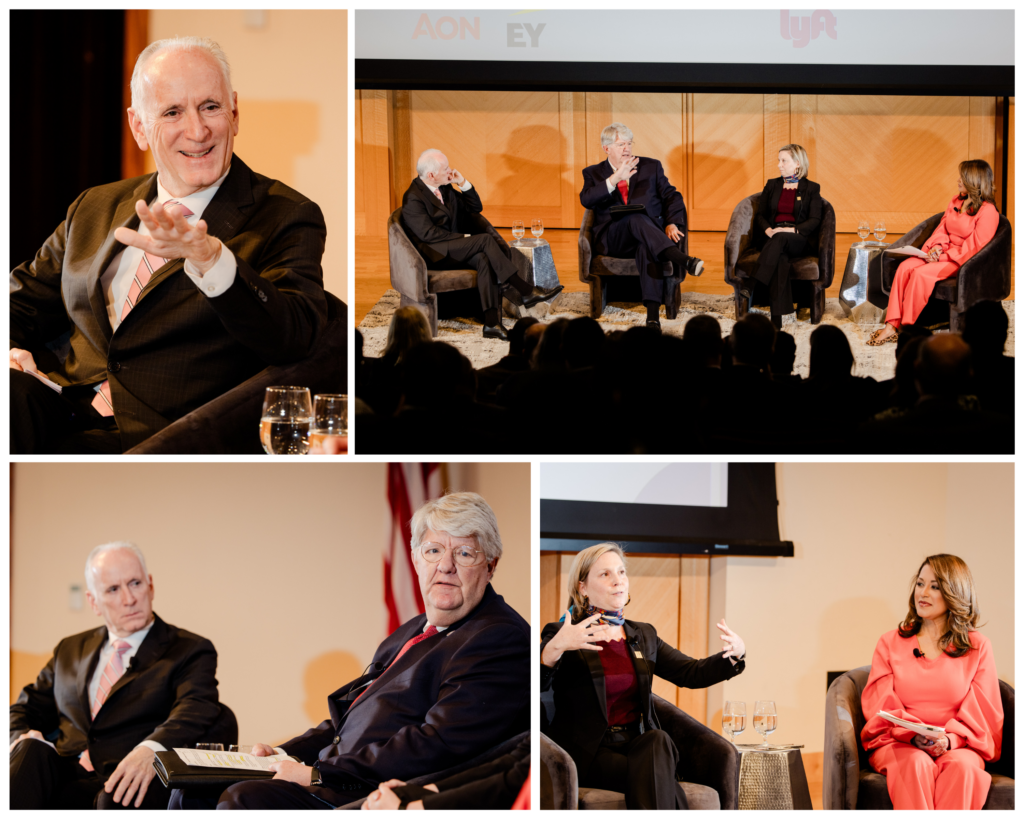
Panel: Regional Transportation Leaders Panel
A panel discussion, moderated by WUSA9 anchor Lesli Foster, brought together the transportation leaders from DC, Maryland, and Virginia to discuss recent progress and collaboration on regional transportation initiatives. The panelists, Virginia Secretary of Transportation W. Sheppard Miller III, Maryland Transportation Secretary Paul Wiedefeld, and Interim Director of the District Department of Transportation Sharon Kershbaum, shared insights on their administrations’ respective visions and shared regional priorities. Safety was stressed as a top priority across the region. All three secretaries emphasized their shared focus on reducing roadway injuries and fatalities. “We lost over 1,000 people last year on our roadways. The problem is that we’ve gotten used to that fact,” said Sheppard Miller III.
WMATA was another key concern and topic of discussion. The uncertain future of WMATA services, escalating costs, and impacts on service are creating instability across the region. “The importance of WMATA to Maryland and to the region cannot be overstated. It’s what makes us competitive nationally and internationally. We cannot let it fail, but we also have to work with our financial realities. We’re going to have to make some hard choices,” said Paul Wiedefeld. The panel explored how each administration is working to ensure stability for WMATA, its funding partners, and the broader community that relies on its services “WMATA’s survival is the District’s survival. The District is really trying to drive demand [for transit] because that is a lever that we have. Priority bus lanes have been key to that.” said Sharon Kershbaum.
The Partnership and the Board of Trade were honored to host 200 leaders to discuss foundational issues for our region’s ability to grow and thrive. Thank you to Lesli Foster for serving as our moderator, all our panelists and presenters, and a special thanks to this year’s sponsors: Georgetown University, EXP, HDR, HNTB, Transurban, Aon, EY, and Lyft. We will continue to convene and look for opportunities to partner with the leaders who joined us at the 2023 Capital Region Transportation Forum to ensure the region continues to make the long-term investments needed to ensure this region remains one of the best places to live, work, and build a business.
Watch the full 2023 Capital Region Transportation Forum here.
To watch and share clips from the 2023 Capital Region Transportation Forum, check out the below videos from our YouTube page:
WMATA (Metro) General Manager Randy Clarke discusses transit system’s $750 million funding gap
Capital Region transportation leaders discuss Metro funding and traffic congestion in DC, MD, and VA
Maryland Transportation Institute shares traffic research for the Greater Washington region
